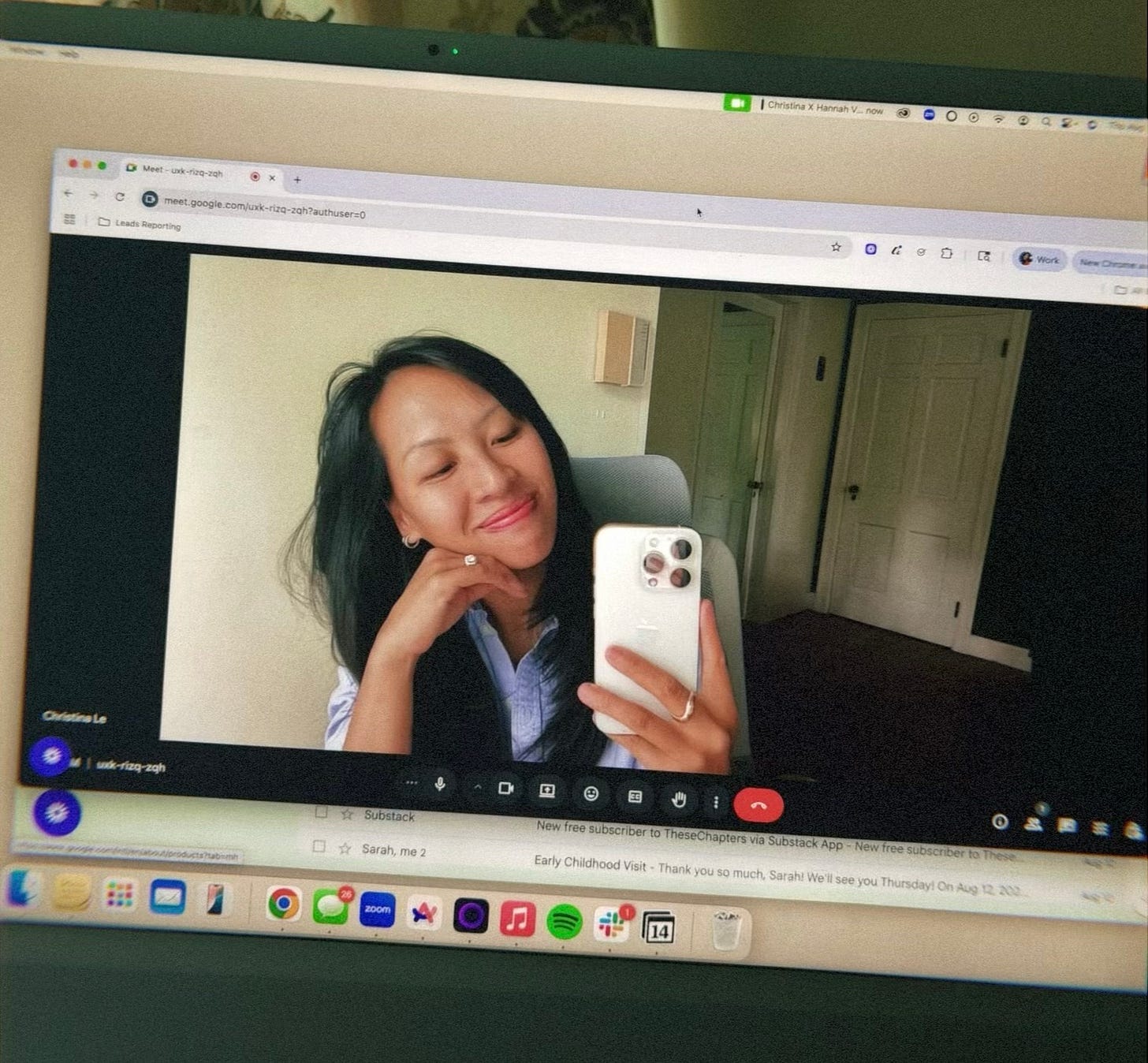Your "hot" takes couldn't even melt butter
A lesson on how to be an independent thinker on social media
This piece has been sitting in my drafts for three months. Three months! I mulled over every detail and sentence structure because I feared my writing kept falling into the very behavior patterns I wanted to call out. Eventually, I accepted that this is simply hard to articulate—which makes it worth exploring.
After many rounds of editing, I’ve positioned this piece around building yourself on social media, though the same rules apply in everyday life as a citizen in society.
I’ve noticed a trend on social (especially on LinkedIn, where I indulge my appetite for corporate misery) where we exist in a pool of lukewarm takes. Contrarian for contrarian’s sake. Comment sections full of people parroting the main post as if reciting a lesson they don’t fully understand back to the teacher.
It’s become boring. And frankly, annoying and predictable.
Here I am sharing my opinion, but I do think we’ve grown uneasy with dissent. We’re so reluctant to ask whether an opinion packaged as fact has earned that authority, and rarely demand or provide context. The result is a culture programmed to fall in line rather than staying curious.
If we don’t challenge, if we don’t question—how do we grow? Let’s diagnose a system where conformity is rewarded, dissent is punished, and intellectual courage has to fight uphill. Maybe we’ll both learn something from it.
Do you know yourself?
I like to think I know myself, or at least feel comfortable with who I am. But on social, my go-to saying is: No one really knows the real me, because depending on the channel, I have a different personality for each.
We learn who we are by seeing how others respond to us. If people laugh at your joke, you start to believe you’re funny. If your posts get ignored, you start questioning whether your ideas matter. Especially online, where we’re constantly measuring ourselves against others.
That’s human.
So when we don’t get the reaction we hope for, we adjust ourselves.
The sociologist Charles Cooley described this as the “looking-glass self”: we build our identity by imagining how others see us. And a whole century later, studies of social media show the same feedback loop in action—likes and comments amplifying that mirror until it warps.
One way to resist this is by recognizing the applause meter in our heads when we consider posting. Two questions help check your conviction:
Do I believe this even if no one likes it?
Would I still say this if it got zero comments?
A post doing well doesn’t mean it’s true, and a post flopping doesn’t mean it’s false. Treat likes, comments, and shares as signals about the medium, but not whole verdicts on your worth. Remember! Algorithms reward novelty and extremity, not depth.
Pluralistic ignorance
Do you know what people on social media hate more than being wrong? Being excluded. Most of us would rather be wrong together than right alone. Psychologists call this “pluralistic ignorance." Which is when you assume everyone else agrees with a norm, so you stay quiet even if you don’t actually believe it. Classic experiments in the 1950s showed that people would agree with an obviously wrong answer about the length of a line, just so they can avoid confrontation with having a different response.
And I get it. If thousands of people are praising a viral take, being the one that disagrees feels risky.
It is much much MUCH easier to fall in line. But easier doesn’t mean healthier. And the danger that comes from that is that this creates a false consensus where everyone thinks “everyone else” believes X, therefore that has to be true, or better to just not ruffle feathers.
That’s why anonymous forums like r/LinkedInLunatics or troll accounts come out to play. When disagreement feels too costly under your real name, anonymity becomes the go to. Sometimes it produces honesty. More more often than not, it mutates into cruelty, because the usual guardrails are gone.
Both outcomes stem from the same system: a public sphere where dissent feels too risky. So, is it easier to fall in line? Yes. But is easier healthy? Hell no. We've contributed to an illusion that erases nuance and leaves everyone lonelier in their doubts because we've refrained.
Performative opinions
You know how I know opinions online often suck? Because it’s too easy to change them. Take LinkedIn again. You might have a nuanced "hot" take, but you shave off the edges because the algorithm rewards snappier, b&w statements. This leaves us with two poles: contrarians whose entire identity is carved out of disagreement (“I’m the one who calls out the BS”), or bandwagoners who echoes the safe takes for easy approval.
And the much to obvious truth: social platforms are designed against you. They’re engineered to amplify extremes because extremes generate engagement.
What’s worked for me to fight against this is showing how I got to my opinion. Share the reasoning, the caveats, the uncertainties. Yeah, it feels riskier and much slower, and less meme-ready BUT that’s what makes it independent. A deeper thinker isn’t someone with lofty takes. We need to be willing to resist flattening.
And I've learned that you shouldn't put all your thinking in one algorithmic feed. If you do, you’ll get trapped in its reward system. Use different containers:
The social feed for concise ideas.
A newsletter, blog, or even private group discussions for longer reflections (like this!).
Journals, or offline conversations, for thoughts without the performance layer.
This spreads out the weight of public approval so it doesn’t dominate your self perception. We just need habits that make space for thoughtfulness.
Uniqueness vs. belonging
Social media heightens our dual craving: to feel special and to feel part of a tribe. Researchers like Roy Baumeister have written about the “need to belong” as a core human drive, while others point out our equally strong desire for uniqueness. We don't need to go so far as to erase the tension but we should absolutely get comfortable living inside it.
History shows what happens when we don’t. The “spiral of silence” theory describes how people self-censor to avoid isolation, creating the illusion that everyone agrees. At the same time, studies of uniqueness suggest people still find small ways to signal difference like tiny tweaks to trends to give little flashes of individuality. Online, that tug-of-war is everywhere! Between trending audio and original takes, between brand voice and the one post that breaks format.
Teams run into trouble when they expect every post to strike a perfect balance. But it's damn near impossible to flex creatively under the constant anxiety of public judgment. So how to fix it?
Think in terms of a brand range instead of a brand line. Instead of one thin boundary, map a spectrum: safe zone, edgy zone, too-fucking-far zone. Populate each with examples, both your own and competitors’. It’s similar to exposure therapy in psychology where you gradually test boundaries to get people to build tolerance instead of fear. For teams, practicing within that spectrum normalizes experimentation and lowers the stakes, rather than treating every choice as a make-or-break move.
The consequence of silence
I keep coming back to this because it matters. When conformity takes over, we all lose something. Groupthink creeps in. We stop asking is this true? and start asking is this safe to say? It’s the kind of mindset Irving Janis was describing when he coined the term “groupthink” after watching how disasters like the Bay of Pigs unfolded. And it’s the same pattern Solomon Asch revealed in his experiments, where people went along with answers they knew were wrong, just because everyone else agreed.
David Myers, in How Do We Know Ourselves, puts it plainly: independent thought—and the courage to voice it—isn’t just about personal growth, it’s about collective progress. Silence might keep things comfortable in the moment, but over time it eats away at trust and creativity. If we want to move forward, we need more people willing to take the risk of being specific, even when it feels uncomfortable.
A healthier way forward
Resist the instinct to curate only what you know will be applauded. That’s the conformity trap.
Share views rooted in lived experience or knowledge, not just what “performs.” That grounds your identity in something sturdier than shifting consensus.
Recognize silence as a choice. You don’t have to comment on every viral opinion. Sometimes independence is refusing to join the chorus.





Hot take: I will read anything you post.
I've been thinking a lot about this too, and am currently reading Kyle Chaka's book that gets at this! It's called Filterworld: How Algorithms Flattened Culture, I think you'd enjoy it! Lmk if you pick it up, I need more people to talk about this with haha